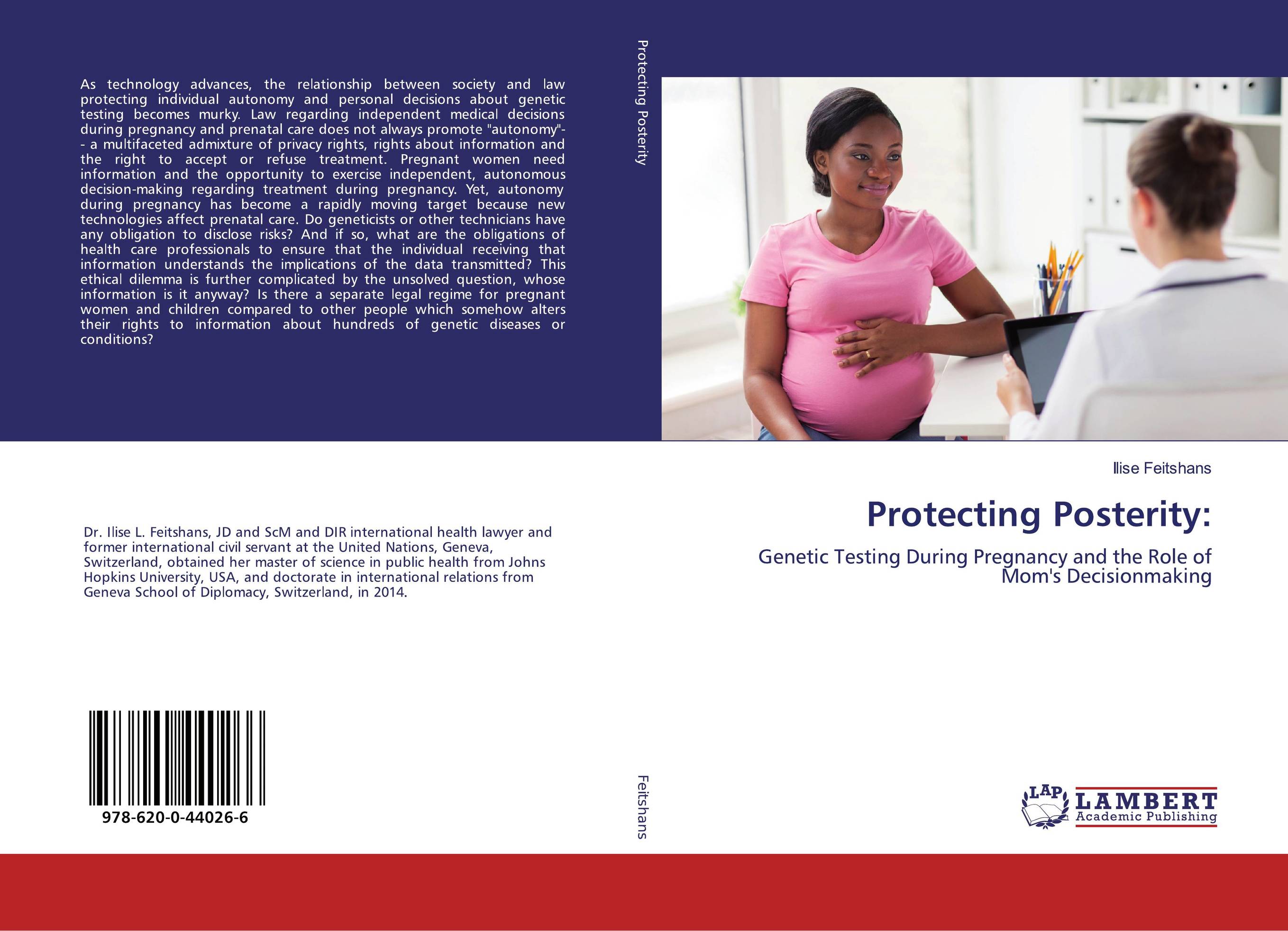| Поиск по каталогу |
|
(строгое соответствие)
|
- Профессиональная
- Научно-популярная
- Художественная
- Публицистика
- Детская
- Искусство
- Хобби, семья, дом
- Спорт
- Путеводители
- Блокноты, тетради, открытки
Protecting Posterity:. Genetic Testing During Pregnancy and the Role of Mom's Decisionmaking

В наличии
| Местонахождение: Алматы | Состояние экземпляра: новый |

Бумажная
версия
версия
Автор: Ilise Feitshans
ISBN: 9786200440266
Год издания: 2019
Формат книги: 60×90/16 (145×215 мм)
Количество страниц: 140
Издательство: LAP LAMBERT Academic Publishing
Цена: 36698 тг
Положить в корзину
| Способы доставки в город Алматы * комплектация (срок до отгрузки) не более 2 рабочих дней |
| Самовывоз из города Алматы (пункты самовывоза партнёра CDEK) |
| Курьерская доставка CDEK из города Москва |
| Доставка Почтой России из города Москва |
Аннотация: As technology advances, the relationship between society and law protecting individual autonomy and personal decisions about genetic testing becomes murky. Law regarding independent medical decisions during pregnancy and prenatal care does not always promote "autonomy"-- a multifaceted admixture of privacy rights, rights about information and the right to accept or refuse treatment. Pregnant women need information and the opportunity to exercise independent, autonomous decision-making regarding treatment during pregnancy. Yet, autonomy during pregnancy has become a rapidly moving target because new technologies affect prenatal care. Do geneticists or other technicians have any obligation to disclose risks? And if so, what are the obligations of health care professionals to ensure that the individual receiving that information understands the implications of the data transmitted? This ethical dilemma is further complicated by the unsolved question, whose information is it anyway? Is there a separate legal regime for pregnant women and children compared to other people which somehow alters their rights to information about hundreds of genetic diseases or conditions?
Ключевые слова: pregnancy, Protecting Posterity, genetics, testing



